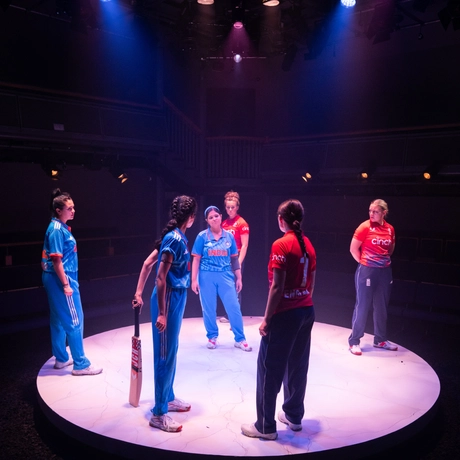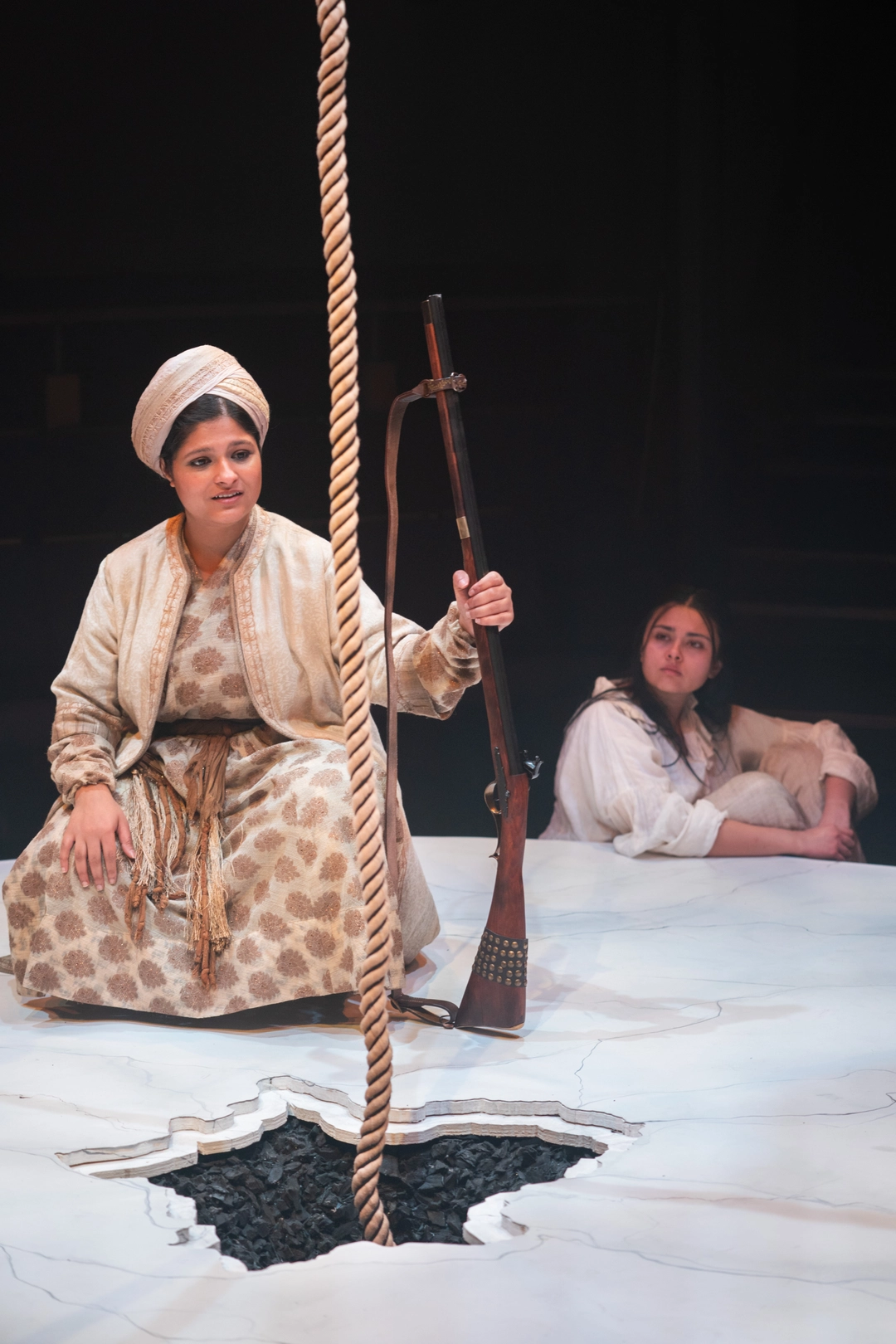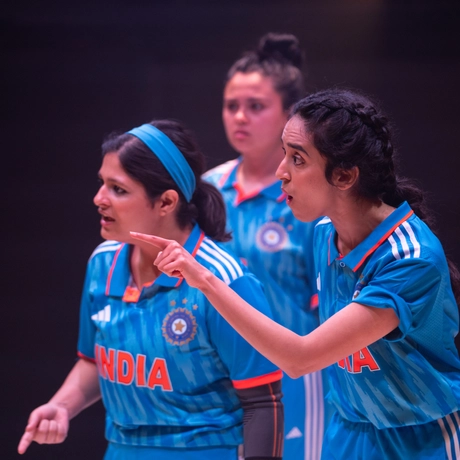Review by Hilary Dawes
Written by Kate Attwell and directed by Diane Page, cricket's past & present collide in Test Match at the Octagon as this compelling new play explores colonialism and explodes the mythology of fair play.

At Lords, during a one-day Women’s World Cup match between England and India, members of both teams rush indoors to shelter from the rain in the tea room, represented by designer Cat Fuller’s plain white circular platform. As they gather together in the small space, the players are edgy and tense, anxious to return to the game as soon as possible, both sides desperate not to lose momentum. They have met many times on the pitch and initially there is some fairly good-natured banter between them, as they goad each other on their abilities and the Indian team continuously bemoan the English weather. Chat turns to dating celebrity athletes, boyfriends, and the attributes of rugby players compared to cricketers in the romance stakes! The jibes become more intense, leading to accusations of improper conduct and racial insults. Tensions run high, tempers fray and the unrest within each team becomes apparent as the team captains each reveal shocking and unexpected news about themselves.
Act Two takes us to Colonial India in the 18th century, where two blustering representatives (named One and Two) of the East India Company await a delegation from the Sultan of Bengal whilst practicing their cricket strokes - their long-suffering servant Abhi being charged with writing down the rules as they dictate them. The two British men are oblivious to the hunger and suffering throughout India, feigning ignorance even as Abhi tries to make them aware of the of the starving locals outside the gates. When a messenger from the delegation finally arrives, he tells of the famine and devastation witnessed along the way, caused by the actions of the East India Company and, as One and Two remain unmoved, the consequences are inevitable.
With standout performances from all the cast, particularly with their character changes between Acts 1 and 2, Tanya Katyal was excellent as the hyperactive young cricketer India 3 and harassed servant Abhi, whilst Aarushi Ria Ganju gave powerful and moving portrayals of both India Captain 1 and the Messenger. From anguished Captain England 1 and pragmatic England 3, to buffoonish and bewigged One and Two, Bea Svistunenko and Haylie Jones displayed incredible versatility and comic timing. Mia Turner (a flighty England 2) was also convincing as the hysterical and opium-dependent Memsahib, and making her UK theatre debut, Aiyana Bartlett gave strong performances as India 2 and Daanya.
On until Saturday 01 June
Visit: https://octagonbolton.co.uk/





コメント